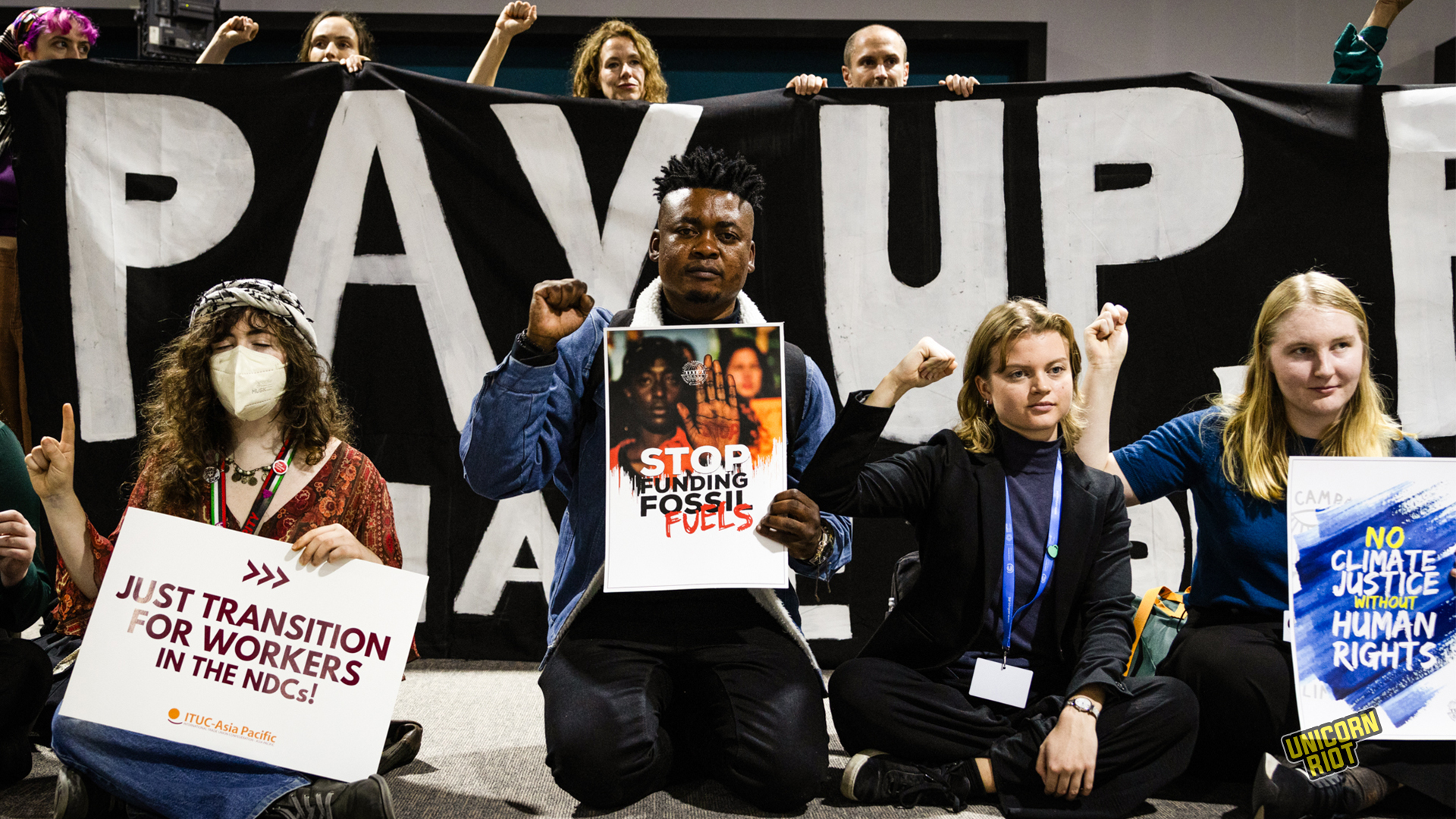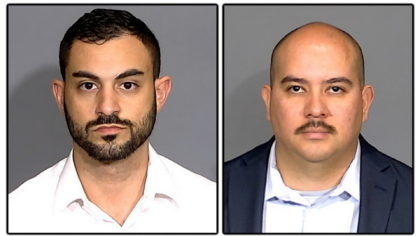‘Little choice but to accept a bad deal’: Developing Countries and Activists Dismissed at COP29
Baku, Azerbaijan — The 29th Conference of the Parties, the world’s biggest climate conference, took place in Azerbaijan from November 11 to 22, and left developing countries and grassroots activists feeling dismissed. The conference ended with wealthier polluting nations agreeing to give developing countries $300 billion per year by 2035 in climate financing to deal with the worsening effects of climate change that can come from a “wide variety of sources, public and private, bilateral and multilateral, including alternative sources.”
COPs, organized by the United Nations Framework Convention on Climate Change (UNFCCC), serve as the world’s biggest climate convention — where countries discuss their progress dealing with the effects of climate change. These conferences have generated several important international accords, such as the Kyoto Protocol and the Paris Agreement, which are legally binding international treaties focused on reducing greenhouse gasses.
Some countries have strengthened their climate pledges, while others have let theirs languish. Former president Trump pulled the United States out of the Paris treaty, but on the first day of President Biden’s term, he signed a letter to rejoin. President-elect Trump is likely to remove the U.S. from the accord again during his upcoming second term, according to his campaign.
While some countries celebrated the climate financing agreement, the Alliance of Small Island States and least developed countries felt disheartened and betrayed that the target was so far away from the $1.3 trillion that they were demanding, mostly in the form of grants.
Many fear that the agreed-upon climate financing will end up comprised mostly of loans not grants, further trapping countries in the Global South in cycles of debt. The financing text, the document that lays out conditions agreed to by all countries, also specified that developed countries will be “taking the lead,” which some understand to mean that some of the funding will have to come from developing countries.
“This has been the most horrendous climate negotiations in years due to the bad faith of developed countries. This was meant to be the finance COP, but the Global North turned up with a plan to betray the Global South. In the end, we saw the same story play out, with developing countries being left little choice but to accept a bad deal,” said Tasneem Essop, Executive Director of Climate Action Network, in a written statement.
With chants like “trillions not billions” and “pay up for climate finance,” non-governmental and community-based organizations like Climate Action Network — which groups over 1,900 different organizations from more than 130 countries — attended COP29 in droves to persuade negotiators to agree to a climate finance goal that would benefit developing countries while forcing developed countries to pay their fair share. Many CAN members had orange lanyards emblazoned with an aspirational $5 trillion climate finance target, which research has shown rich countries are capable of paying.
The finance text urges “all actors to work together” to scale up financing for developing nations to $1.3 trillion per year by 2035 from all funding sources. The previous $100 billion climate finance goal was only reached in 2022, two years late from the original 2020 deadline.
Current climate policies put the world well on track to surpass the 2°C threshold established by the Paris Agreement, according to the UN’s Emissions Gap report.
Almost every day, activist groups held about half a dozen actions throughout the halls of Olympic Stadium in Baku (Azerbaijan’s capital), which had been retrofitted to look like a convention center. Each protest had to be coordinated with UN and UNFCCC security and had strict restrictions imposed on them, such as limiting the number of participants and not mentioning countries or certain words.
“Civil society is admitted as observers in order to share their experiences, their expertise [and] — for many people — their lived experiences on the frontline of climate change and fossil fuel extraction. And the less they are able to do that, the more of a farce the COP negotiations become,” Marta Schaaf, Amnesty International’s director of Program on Climate, Economic, and Social Justice, and Corporate Accountability told Unicorn Riot during an action focused on protest restrictions at COP.
While Schaaf acknowledged that there had always been restrictions on actions at COP, she noted that UNFCCC restrictions becoming more stringent in recent years reflect a closing of civic space worldwide.
“Restrictions have gotten tighter in recent years, perhaps due in part to the host countries where COP is occurring and perhaps due to other reasons,” Schaaf said. At the tail end of the interview with Unicorn Riot, she pointed out that she was being filmed by a person with a “volunteer” badge.
One of the reasons for the limitations could be the host country, she said. Since Azerbaijan was named to be the host of COP29, activists raised the alarm about hosting such an important climate summit in an authoritarian country. The Azerbaijan government has cracked down on public demonstrations, as well as “arbitrarily shut down” non-governmental organizations and arrested activists and representatives. It has also overseen an ethnic cleansing in Nagorno-Karabakh, according to the Armenian government.
These restrictions were most clear during the Nov. 16 Global Day of Climate Action protest. As the protest started, activists were packed into a small part of a plenary hall — the only space where they were allowed to chant by UNFCCC security — that had earlier comfortably housed hundreds of delegates. Outside of the plenary, activists held a ‘silent protest’ where they hummed the chants they would have usually sang while lining the walls of one of the main halls. If they had sung in the halls, it is likely the conference’s security, present at every action, would have shut them down.
“I never thought I would be in a place where I thought all voices should be heard without being able to speak, without being able to say what we demand,” Paloma Jofré from Earth in Brackets, a youth climate collective from College of the Atlantic, told Unicorn Riot during the protest.
COP30 will take place in Belém, Brazil in 2025. While some activists are expecting broader freedom of expression in the South American country, others worry that the purpose of COPs is being diluted as climate action slows while climate change speeds.
This Unicorn Riot media project was in collaboration with 9 Millones and Climate Tracker’s Caribbean COP 29 Fellowship.
Related: International Solidarity Fostered at the First Ever ‘World Congress for Climate Justice’ [Dec. 2023]
Follow us on X (aka Twitter), Facebook, YouTube, Vimeo, Instagram, Mastodon, Threads, BlueSky and Patreon.
Please consider a tax-deductible donation to help sustain our horizontally-organized, non-profit media organization:



